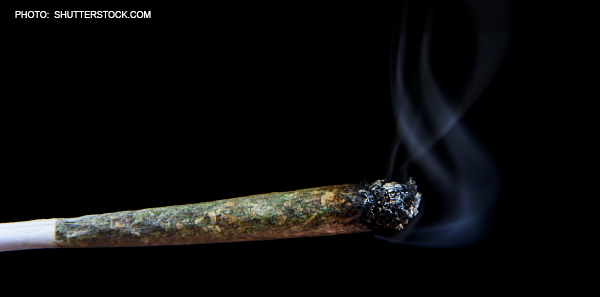
Dr. Roberts questions why so-called “cannabis refugees” move to Colorado for medicinal cannabis, thereby leaving “established medical care” for their illness. I think the more appropriate questions are, Why should these patients need to leave their home state in the first place? Why should crossing a state line determine whether patients are entitled to avail themselves of all potential treatments for their illnesses?
Explore This Issue
ACEP Now: Vol 36 – No 10 – October 2017I agree that we should improve medical education as it pertains to medical cannabis. Furthermore, as a physician, I am not completely comfortable with so-called “budtenders,” who may lack proper training about medical cannabis products. However, if the medical profession does not step in, what alternative source of information do patients have?
As legalization spreads around the United States, public education is paramount. Many of the problems portrayed in Dr. Roberts’ article were likely the result of overconsumption or accidental ingestion, especially with edible formulations. These enterically absorbed preparations have a slower onset of action than inhalation, the more traditional method of consumption. Those who have not been properly educated about the associated delay in onset may ingest more edibles, resulting in a larger than desired dose.
This is no different than naive alcohol consumers overindulging as a result of their unfamiliarity with alcohol’s effects. Furthermore, the vast majority of cannabis ingestion–related emergency patients I have cared for in my 13-plus-year career have presented after consuming cannabis laced with other chemicals such as methamphetamine or formaldehyde. These preparations are almost exclusively the products of the illegal market, which would be greatly curtailed by a legal and regulated cannabis industry.
Whether referring to medical or adult recreational cannabis, we must educate the public about improper storage of all drugs, given the associated risk of accidental ingestion. There have been instances in which cannabis-containing preparations that were not properly labeled have been ingested, leading to untoward effects and even hospitalization in some cases. This is an issue that many states with legal programs have attempted to remedy alongside the cannabis industry, which has done an admirable job of self-regulating. Potentially harmful substances, whether prescription opioids, alcohol, or cannabis, should be secured away from children and unsuspecting adults to avoid these situations.
Dr. Roberts’ article represents the antiquated thinking that allows this process to continue unchecked. The medical community should educate itself about cannabis and provide guidance to patients and dispensaries on its use. I urge readers to do their own research, attend a conference, or take a CME course rather than make broad statements about cannabis based on selected anecdotes and 80 years of drug war propaganda.
Pages: 1 2 3 | Single Page





2 Responses to “Opinion: Emergency Physicians Need Better Education on Medical Cannabis”
November 12, 2017
Larry A. BedardI want to thank Dr. Bier for an excellent and informative article about cannabis.
I was also disappointed by the one-sided argument published in ACEP Now’s May 2017 article “Experiencing the Dangers of Marijuana Firsthand” by Brad Roberts, MD.
As a relatively new resident Dr. Roberts clearly doesn’t understand the difference between correlation and causation. My brother, Dr. Charles Bedard, practiced ENT in Pueblo of more than 40 years. When he arrive Pueblo was a prosperous town with a thriving large steel mill. When the steel mill closed, the rates of unemployment, poverty and homelessness greatly increased.
The so-called “cannabis refugees” who move to Colorado for medicinal cannabis are parents of children who suffer from complex seizure disorder. A randomized, double blind study reported in the NEJM demonstrated a 40% reduction in seizures with 5% of kids becoming seizure for. Last year only 9% of medical schools taught students about the endocannabanoid system, discovered in 1988
November 12, 2017
VinnyDr Bier,
AMEN! And Thank you